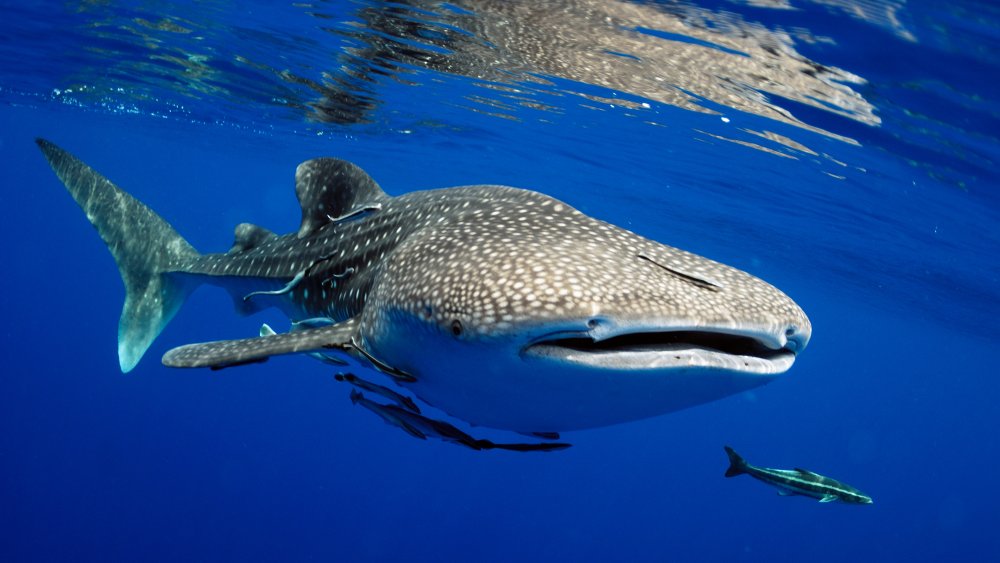What Do Whale Sharks Eat?
Whale shark. What a great name. If you really want to fight a shark, Captain Ahab, why are you messing around with a sperm whale? Moby Grape, indeed. (Oh. Wait. That was a band. We meant Moby Dick.)
Whale shark. Even the name conjures up some kind of Jurassic Park chimera, with Jeff Goldblum stuttering a warning about how teeth will find a way, or Chris Pratt getting all outraged and then running a lot, or Richard Dreyfuss leaning into the shot to point out that you're gonna need a bigger harpoon. Not to mention Whale Sharknado, bigger and better and sharkier than ever. So much shark. Ponder that for a moment.
It's probably a disappointment, but whale sharks are massive — the biggest fish on the planet (as far as we know, said the guy with the sasquatch poster in his apartment). And they're carnivores (this is getting so cool! said the sixth grade boy with a resin statue of Chupacabra next to his night light). There, however, the trail of terror abruptly ends.
Stand down, Captain Ahab. So to speak
Whale sharks are about the size of a standard school bus, up to 40 feet long. And left to themselves, they've got a decent lifespan of about 70 years, which is more time on the planet than Davy Crockett got.
You're probably thinking there's a setup for a joke here: "What does a whale shark eat?" "Anything he wants! Hahahahahahaha!" Which might be true, for juvenile delinquent whale sharks. But the standard-issue edition is what's known as a filter feeder. They swim along, their mouths open, like baleen whales, passively taking in plankton and the wee creatures so oblivious to their environment they didn't notice the biggest fish on the planet closing in on them.
So in terms of natural selection, maybe it's all for the best.

